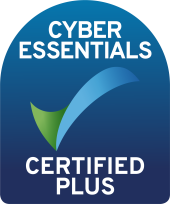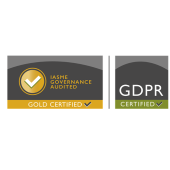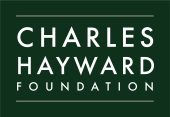Every year, approximately two million individuals in the UK suffer from some type of domestic abuse. Of these, 1.3 million are female, and during the next 16 Days of Action we will be highlighting our work to help prevent and reduce domestic violence in Lincolnshire.
The 16 Days of Action is a programme of raising awareness around issues involving violence against women and girls. Now in its 31st year, the campaign is continuing the 2021 theme of ‘Ending Femicide’ by spotlighting certain groups of women and girls who are more vulnerable.
During 2021 and 2022 Lincolnshire Action Trust has worked with 440 women who are experiencing the effects of domestic violence.
In a sample of cases from our Women’s Service, one in 11 women had domestic abuse identified in their initial referral, but 55% had experienced domestic abuse either leading up to or during their time accessing the service. We know that the reality is much higher than that.
It often takes time to build the relationships that allow a woman to feel safe enough to disclose that she is being abused, and it can take many attempts before she is able to finally break free of the abusive relationship.
Domestic abuse is something no person should have to deal with in their lifetime, and raising awareness of available options for victims of domestic abuse is the way we can support and protect individuals from further pain.
We work alongside agencies such as Women’s Aid, Edan Lincs and Blue Door to ensure the safety of the client. We use holistic and trauma-informed interventions, working to engage with women in these difficult situations.
Below are two examples of our clients using our services to make a positive impact on their lives:
Case study 1 - Rosie
Rosie has experienced abuse and abandonment since childhood.
She often drinks, which makes her vulnerable to those who would exploit her, and she recently met Michael after he was released from prison. Michael started following Rosie everywhere and would try to attend appointments with her. He encouraged her to stop taking her medication and to start using heroin, resorting to violence if she did not do what he wanted her to. He would refuse to let her talk to her family and would answer the phone on her behalf. Despite Rosie’s attempts to get him to leave her alone, he persisted, even breaking the window in her home so that he could get access to her whenever he wanted to. He threatened to kill himself, her and her family if she ever left him.
Rosie spent a few nights sleeping rough to try to escape from the violence and ensure that it would be witnessed by CCTV should anything happen to her. She repeatedly told everyone around her that she was scared but started to withdraw as the abuse intensified, drinking to cope with the abuse and failing to take her medication, which led to a dramatic decline in her mental health. She ended up making an attempt at her own life as she did not see any alternatives.
Through her work with the Women’s Service, Rosie was able to reach out when things got really bad. Her case worker had been supporting her sobriety and developing positive peer groups when she first relapsed and met Michael. The support was adapted when it became clear that Rosie was in a controlling and abusive relationship – providing safe spaces for her when she needed to escape and working with the police to keep Rosie as safe as possible. Following her overdose, something changed for Rosie. She begged her case worker to help her to escape.
The practitioner worked with Rosie to find a safe place for her where she could recover and work on maintaining her sobriety. Within a couple of hours they had arranged transport away from the abusive situation and provided Rosie with what she needed to settle into her new home.
Rosie says that the Women’s Service saved her and that she would not be alive without the encouragement and practical support that they have given her.
Case Study 2 - Sarah
Sarah was experiencing physical and verbal abuse from her partner. This had gradually worn away at her confidence and self-esteem and she became reliant upon her partner, reluctant to accept that she was living in a dangerous situation, taking the blame on herself and minimising the abuse that she was suffering. She finally managed to leave the home for a while but when she discovered she was pregnant, Sarah returned home. For a while, all seemed to be going well. The pregnancy appeared to have changed things and everything was well.
The Women’s Service worked with Sarah to provide support through this changing situation and helped her to develop the skills and confidence that she would need to live independently. They were always on hand to help her through repeated attempts to leave her abusive partner.
Early one morning, Sarah woke up early to being beaten and she was seriously kicked in the back. She realised then that it would not be safe to have a baby in this situation and called her practitioner to get help. They were able to arrange for a taxi to go to her house and pick her up and take her to a place in a refuge that they had found for her.
Sarah has now found a flat of her own and looks forward to the baby arriving. She has found a new purpose in her life and has support for her and her new baby, free from fear and violence.
The 16 Days of Action begins on 25th November, the International Day for the Elimination of Violence against Women, running through to 10th December, Human Rights Day.
If you or someone you know needs support, you can find out more about our Women’s Services here or you can contact us by calling 01522 806611 or email hello@LATcharity.org.uk.













